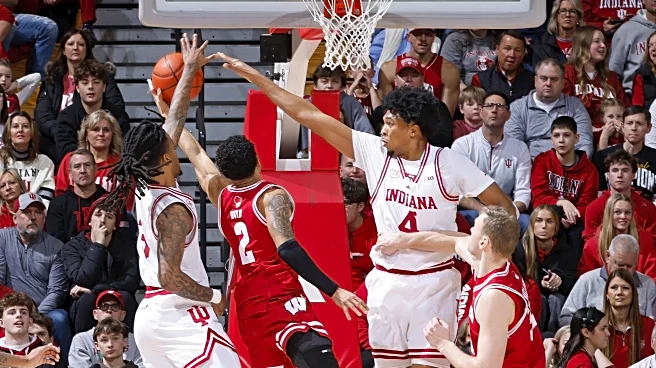What's Happening?
President Trump's recent Asia tour has generated optimism for a potential trade deal with China, leading to a rally in global markets. The announcement of several framework trade deals during the tour has been a significant factor in this market uplift.
President Trump also met with Brazilian President Luiz Inacio Lula da Silva, which went 'very well' according to Trump, raising hopes for easing the substantial levies imposed on Brazil. Despite the positive market response, there remain uncertainties about the specifics of these deals and their potential impact on inflation and global trade dynamics.
Why It's Important?
The potential trade deal with China is significant as it could ease tensions between the two largest economies, potentially stabilizing global trade and reducing inflationary pressures. This development is crucial for industries reliant on international trade, as it may lead to reduced tariffs and improved market access. The positive market reaction indicates investor confidence in the potential economic benefits of these deals. However, the lack of detailed information on the agreements leaves room for uncertainty, which could affect future market stability and economic planning.
What's Next?
As the details of the trade deals are negotiated, stakeholders will be closely monitoring the outcomes. Businesses and investors are likely to adjust their strategies based on the finalized agreements. Political leaders, particularly in the U.S. and China, may face pressure to ensure the deals are beneficial to their respective economies. Additionally, the potential easing of levies on Brazil could lead to improved trade relations and economic opportunities between the U.S. and Brazil.














